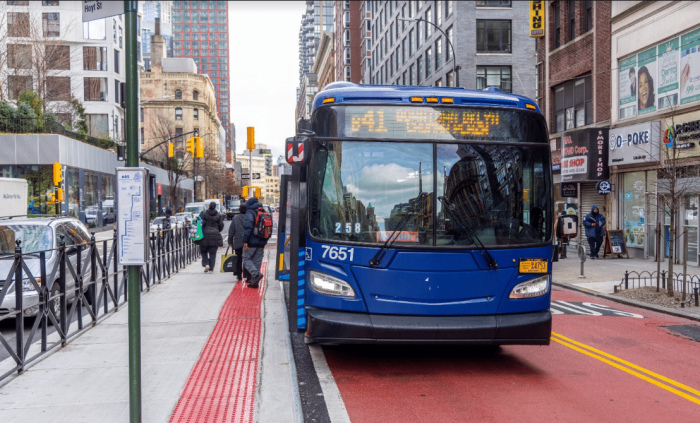By Dustin Brown
A blue paper sign hangs on the white tile wall of the Egyptian Coffee Shop in Astoria: “This is a smoke-free establishment.”
It is small but prominent, not even fading from view as the smoke customers puff with impunity floats around it like mist.
At a shop that derives 90 percent of its business from people smoking water pipes, or shisha, the sign is a bit out of place.
“The purpose to come here is for smoking,” said Mohammed Darwish, 35, a Long Island limousine driver originally from Jerusalem. “What's the point to shut it down?”
A day after the city's tough smoking ban went into effect, many of the Steinway Street cafes that grew up to cater to the community's bustling Middle Eastern population continued to offer their selection of smokes with the hope they could continue operating in the era of a smoke-free city.
As shop owners struggled to grapple with the city regulations, the state last week approved its own sweeping anti-smoking measure that will overpower the city statute when it takes effect in July.
But the confusion that hangs around the new rules is far denser than the veil of smoke the customers puff from their pipes. Even if the laws do technically allow them to stay open, whether the owners can navigate through the bureaucratic thicket is another question.
“I read in the paper there are some exceptions. I don't know if these exceptions could include me or not,” said Labib Salama, the owner of Egyptian Coffee Shop, who spent a day shuffling among city offices in search of an answer. He didn't find one. “I have nobody to talk to.”
A spokeswoman for state Assemblyman Pete Grannis (D-Manhattan), who introduced the state measure, said she believes the Steinway shops would qualify for an exemption for cigar bars – which are defined as places that as of last Dec. 31 “generated 10 percent or more of their gross income from the on-site sale of tobacco product and the rental of on-site humidors.” The businesses must submit applications to be considered for the exemption, which would allow them to continue operating without reproach.
The pipes, a Middle Eastern tradition, filter flavored tobacco heated by red hot coals through water and down a long tube to the smoker's mouth. Salama equates Egyptian smoking cafes to bars in America.
“This is a culture,” Salama said. “If you say in Egypt do not smoke, it's like you say in New York no liquor. We have no bars to go. The bars where we go is just in these cafes where we meet and smoke water pipe.”
The paradoxical sign is simply a bid to avoid a fine, having gone up only after Salama recently received a criminal court summons from a police officer for failing to post it earlier.
Although he is running his shop as usual, Salama said business fell off after the ban went into effect because so many customers assumed he would be shuttered.
The owners of the other cafes along Steinway Street tell similar stories. At Eastern Nights, a restaurant that does half its business in the shisha, most tables sat empty Monday at a time of night when they would ordinarily be bustling. That establishment put up signs in Arabic explaining the ban, and the owner plans to fade out the water pipes in the next few days.
“The food would not exist without the smoke, because people come here for atmosphere,” said owner Mohamed Bashir. “They come from different places to smoke here. The minute you start to ban the smoke, they don't come here.”
At Mazazique Cafe, where the air remains thick with scented smoke, owner Aly Mohamed is still hopeful.
“We're gonna follow the law, we're gonna follow the exemptions,” he said. “We have to sit tight and see how they're going to respond to us.”
Reach reporter Dustin Brown by e-mail at Timesledger@aol.com or call 718-229-0300, Ext. 154.































